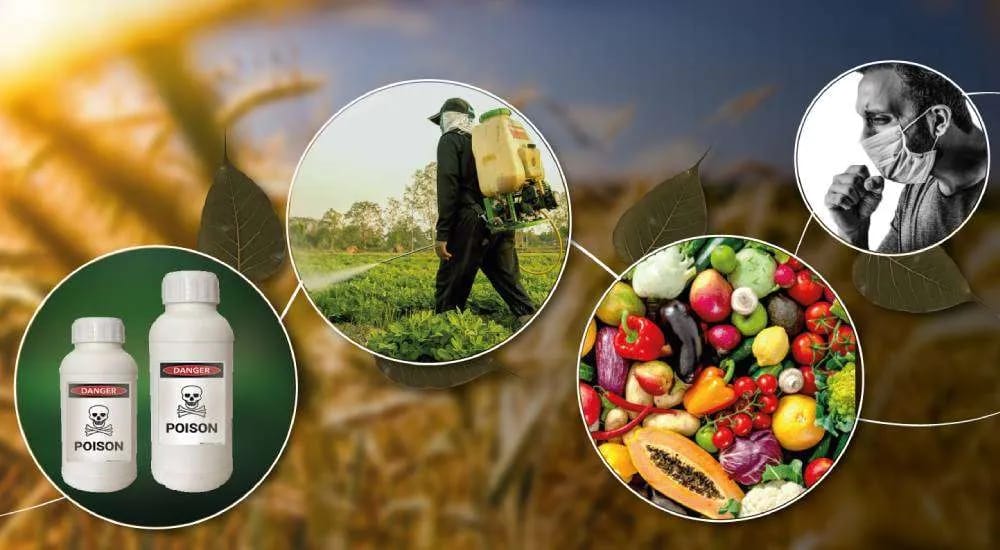News
FG advises farmers on post harvest losses

FG advises farmers on post harvest losses
The Federal Government has advised farmers to partner with experts in the area of agricultural research and development to curtail perennial post harvest losses of produce.
Prof. Hussaini Ibrahim, the Director General, Raw Materials Research and Development Council (RMRDC), gave the advice in Sokoto at the inauguration of first Indigenous Onion and Garlic processing plant on Saturday.
Represented by Mr Emmanuel Kwaya, a Director in the council, Ibrahim said having an effective processing plant of agricultural products and initiating research based storage would improve food security for the country.
RELATED STORY :FRSC cautions against conveyance of gas cylinders in passenger vehicles
“This development will aid our commitment toward zero hunger, promote productivity and profitability among farmers, improve national economy and address the challenges of unemployment,” he said.
The director general added that over the past three decades, the RMRDC has remained the national institutional framework for promoting local raw materials development and utilisation by industries.
“The gesture has achieved tremendous milestones in the development and growth of Nigeria’s industrial sector.
“Today marks an important milestone for the manufacturing industry in Nigeria as we commission the first wholly indigenous onion and garlic flakes processing plant.
“I am particularly delighted that this plant was designed and fabricated by Nigerian engineers following the call by the Council to reduce the perennial post-harvest wastages associated with onion and garlic,” he said.
Ibrahim commended the partners and investors who have made the project a reality.
“They have shown confidence in the Nigeria-can-do spirit and have taken concrete steps to help see our Research and Development (R&D) results in Onion and Garlic processing reach their full potential,” he said.
Mr Aliyu Maitasamu, the National President of Onion Farmers Association of Nigeria, said over 2 million metric tones of onion is produced annually in Nigeria with Sokoto State producing 40 per cent of the product.
“Based on the annual estimate, the onion produced in Nigeria amounted to more than N700 billion but about 40 to 50 per cent of the product worth over N300 billion is wasted to post harvest losses.
“This is due to lack of adequate and effective storage and processing facilities at the farmers disposal.
“We thank Onion and Garlic Processing Partnership Limited (O&G company) for coming to our rescue by establishing this timely processing plant,” he said.
The Sultan of Sokoto, Alhaji Sa’ad Abubakar III, represented by the District Head of Sokoto-North, Alhaji Malami Maccido, appreciated the investors, assuring that the Sultanate Council will continue to support farmers in the state.
The Chairman of the company, Dr Saleh Ibrahim, said the idea was conceived by some elites in the state to rescue onion and garlic farmers from their perennial post-harvest loses.
He said that the plant would continue to consider more research and development in order to ease the current hardships experienced by farmers across the state.
FG advises farmers on post harvest losses
News
Nigeria Records 38% Drop in Polio Virus Cases in One Year – WHO

The World Health Organisation (WHO) has reported a significant 38% decrease in circulating variant polio virus type 2 (cVPV2) cases in Nigeria between 2023 and 2024.
Speaking at a news conference following a roadshow to mark World Polio Day in Maiduguri, Dr. Walter Mulombo, WHO’s Country Representative, highlighted the achievement as a result of concerted efforts by the Nigerian government and its partners to curb the outbreak.
Mulombo, represented by Dr. Aisha Kadi, emphasized the importance of vaccinating the remaining unvaccinated or under-vaccinated children, noting that the virus continues to spread due to gaps in immunization coverage.
“The global spread of cVPV2 underscores the need for continued vigilance, as no country is safe from polio until it is eradicated worldwide,” Mulombo said.
He praised the collective efforts that have protected millions of children from polio, adding that five of the six WHO regions, including Africa, are now free from wild poliovirus. However, challenges such as violence, vaccine refusals, and climate emergencies persist in reaching all children with vaccines.
Mulombo urged renewed support for global eradication efforts, stressing that the polio vaccine remains safe and effective in protecting children from paralysis caused by the virus.
News
8 Feared Dead as Helicopter Crashes in River State

A helicopter crash in Rivers State has left eight people, including six oil workers and two crew members, feared dead after the aircraft plunged into the Atlantic Ocean on Tuesday morning.
The helicopter, owned by Eastwind Aviation, was en route to the OML 123 oil field when it crashed around 11:40 a.m. near the Mimbo platform and Floating Production Storage and Offloading (FPSO) vessel.
Eyewitnesses reported that the helicopter unexpectedly ditched and nosedived into the ocean. So far, three bodies have been recovered, with rescue efforts ongoing. Authorities have yet to confirm the total number of casualties, though concerns grow that all eight individuals onboard may have died.
This tragic incident has raised alarm over helicopter safety in Nigeria’s offshore oil sector. Aviation safety agencies are expected to investigate the cause of the crash, as calls for improved safety measures intensify following the growing number of similar accidents in the region.
News
Avoid Harmful Pesticides for Grain Storage, Expert Warns Farmers

Dr. Joseph Kaltungo, an agronomist based in Gombe, has advised farmers to stop using harmful pesticides for grain preservation, highlighting their severe health risks.
In an interview with the News Agency of Nigeria (NAN) on Wednesday, Kaltungo emphasized that the Federal Government has banned the use of hazardous chemicals in grain storage to protect public health. He cautioned against the use of products such as Actellic dusts, Actellic liquid, rat killers, and Phostoxin, which can pose significant dangers when consumed.
Kaltungo urged vegetable growers to avoid spraying pesticides just before harvest to prevent food poisoning. He recommended safer storage techniques, like using chemically coated polythene bags for long-term preservation and jerry cans or drums for short-term storage. Additionally, he suggested mixing dried pepper with grains to deter insects.
The agronomist also stressed the importance of properly drying grains before storage, noting that groundnuts contaminated with aflatoxins, caused by fungal infections, have been rejected in international markets. He advised farmers to avoid storing grains on the floor and to use crates or cartons to prevent moisture absorption, which can lead to spoilage.
Kaltungo urged farmers to fumigate their silos and warehouses, ensuring proper ventilation and sealing holes to keep pests out. He also called on the government and development organizations to build more community storage facilities to help farmers prevent post-harvest losses, which negatively impact rural incomes.
-

 Business1 year ago
Business1 year agoNew Rates: ‘I borrowed money to finance this business…’ – Petroleum Marketer cries out over Non-supply of products by the NNPCL
-

 Entertainment3 months ago
Entertainment3 months agoBBNaija Season 9: TAMI Duo Evicted After Low Vote Count
-

 Health6 months ago
Health6 months agoOnly 58,000 doctors renewed licence out of 130,000 registered doctors – MDCN
-

 Business2 years ago
Business2 years agoNew Naira Notes: We Have No Information On The Supreme Court Ruling – CBN
-

 Defence & Security3 months ago
Defence & Security3 months agoOrganisers Demand IGP’s Dismissal Over Fatal Protest Crackdown
-

 Defence & Security2 months ago
Defence & Security2 months ago“Defence Chief Praises Strong Inter-Service Cooperation for Operational Successes”
-

 Opinion2 years ago
Opinion2 years agoAddressing Nigeria’s food security challenge through eco-friendly agriculture
-

 Entertainment2 months ago
Entertainment2 months agoBBNaija S9: ‘Radicals’ duo evicted from reality show


